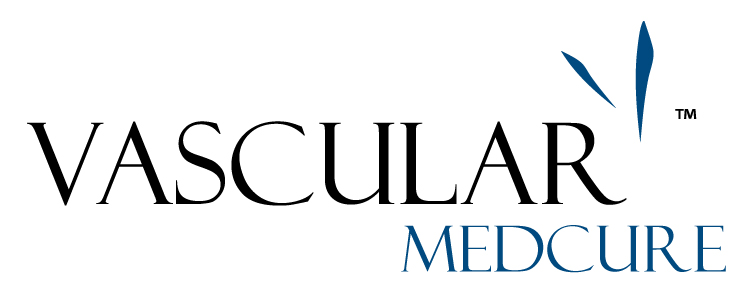
The MSA Coalition Board of Directors
By initiating this new research direction, the MSA Coalition aims to make more strategic research funding decisions and be the catalyst that will encourage collaborative efforts and bring a laser sharp focus towards solving these problems.
CHARLOTTE, N.C. (PRWEB)
December 06, 2019
The Multiple System Atrophy Coalition (MSA Coalition), the leading nonprofit funder of global MSA research, recently unveiled its bold new initiative to kickstart MSA research collaborations. Multiple system atrophy is a rare neurodegenerative disorder that strikes in the middle-years of life.
Infused by $3 million in new bequests earmarked for research and combined with ongoing grassroots fundraising efforts, the MSA Coalition is poised to play an exciting new role by planning and initiating international MSA research working groups. The new research initiative will focus primarily on providing seed funding to highly collaborative research projects which tackle critical unanswered questions about this rare neurodegenerative disease: What causes MSA? Where in the body does MSA start? How does MSA progress and can a standardized measurement (biomarker) be developed? How do we treat MSA, and ultimately can we hope to cure it?
“Satisfactory answers to the mysteries surrounding this rare disease have been elusive,” said Gregor K. Wenning, MD, Ph.D., Chairman of the MSA Coalition’s Scientific Advisory Board. “By initiating this new research direction, the MSA Coalition aims to make more strategic research funding decisions and be the catalyst that will encourage collaborative efforts and bring a laser sharp focus towards solving these problems.”
To initiate these projects, known as Cores, the MSA Coalition will initially select a group of key investigators based on their demonstrated willingness to openly collaborate on these unanswered questions. In fact, the MSA Coalition has made it a requirement that before gaining acceptance to a Core project, investigators must first agree to share their results with the wider research community. In the future, they will offer Core Expansion Grants to enable interested new members to join a Core project.
Building hope through research
Historically the MSA Coalition has provided seed funding to individual investigators and some smaller collaborative teams seeking proof-of-concept on their innovative ideas in the hope that, if successful, their research might qualify for additional funding from government or other private sources.
Results from MSA Coalition-funded research are now being reported in scientific journals showing progress being made towards developing blood and skin biomarkers that could diagnose MSA earlier and with greater accuracy. There are also several potential MSA treatments now moving through the pipeline that were originally funded by the MSA Coalition in early laboratory studies.
“It’s really exciting to see our investments in MSA research starting to have a direct impact on patients,” said Pam Bower, Chair of the MSA Coalition’s Research Committee. “Our decision to fund a proof-of-concept laboratory study of the diabetes drug Exendin-4 in MSA mouse models back in 2016 has paved the way for the development of a clinical trial in MSA patients that will soon be underway in the UK. In addition, a recent MSA Coalition funded clinical study in Austria has reported for the first time that physiotherapy is of benefit to MSA patients. None of this would have been possible without the help of our grassroots donors and supporters.”
The MSA Coalition has a proven track record of catalyzing research collaborations, and with the advice and expertise of their renowned Scientific Advisory Board, selecting and funding the most promising MSA research efforts around the world. As of 2019, the MSA Coalition has funded 37 high-impact MSA research projects at 25 research centers in 10 countries for a total of $1.7 Million.
“From the beginning the MSA Coalition’s research program has been aimed at encouraging new ideas from global scientists. The ongoing success of our original seed grant program has enabled the MSA Coalition to build a strong network of connections with MSA researchers interested in a collaborative approach to understanding multiple system atrophy and finding both symptomatic and disease-modifying treatments leading to a cure,” said Larry Kellerman, Co-Chair of the MSA Coalition’s Research Committee. “After two years of extensive planning we are now ready to move our research program to the next level as we strive to improve early diagnosis, alleviate symptoms, slow disease progression, and ultimately find a cure. We will also renew our efforts to provide seed grants to promising research ideas that fall outside of our Core program. We are very excited to launch this comprehensive research program and plan to begin funding by early 2020.”
The MSA Coalition utilizes its globally represented, highly engaged Scientific Advisory Board (SAB) to vet and help guide the Board of Directors in developing and executing a research strategy, including the best allocation of research funds. With access to the highest level of expertise in MSA research, efficient progress towards viable treatments for multiple system atrophy is now bringing hope to families affected by MSA.
“We are very excited about the new direction of our research program and the tremendous progress we have made since awarding our very first MSA research grants in 2014. Working together, our research committee and SAB have put together a well-coordinated, openly collaborative, patient-centric MSA research plan,” said Don Crouse, Vice-Chair of the MSA Coalition Board of Directors. “It is truly amazing to be a part of transforming the SDS/MSA Support Group into what is now the Multiple System Atrophy Coalition.”
Due to the rarity of multiple system atrophy, funds for research are highly dependent on philanthropy from those personally affected by the disorder. Over the past four years the MSA Coalition has received nearly $7 million in contributions from memorial donations, grass-roots fundraisers, planned giving bequests, and corporate sponsors.
“It is important to recognize the significance of bequests. Thanks to these generous and selfless gifts we now have considerable funds earmarked for research. These bequests were made based on the MSA Coalition’s proven track record of funding research and our commitment to financial transparency,” stated Cyndi Roemer, Chairman of the MSA Coalition Board of Directors. “Additionally, our teams of dedicated fundraisers and donors continue to support the growth of not only our research programs, but also much needed education, support services, and advocacy initiatives.”
A list of all MSA Coalition funded research plus upcoming grant opportunities can be found at: https://www.multiplesystematrophy.org/msa-research/. Interested researchers are encouraged to check back regularly and to sign up for the MSA Coalition’s researcher newsletter
About the Multiple System Atrophy Coalition
The Multiple System Atrophy (MSA) Coalition is a positive beacon of hope standing up to a little-known, rare, insidious disorder. Since 1989, the MSA Coalition has been devoted to improving the quality of life and building hope for people affected by multiple system atrophy by focusing on a four-pillar mission:
-
Providing patients and caregivers with trusted and compassionate emotional support
- Educating patients, care partners and healthcare professionals with credible, critically important and relevant information
- Funding patient-centric collaborative research aimed at alleviating symptoms, slowing disease progression and discovering a cure
- Building a sense of community by connecting and unifying people affected by MSA.
Thousands of participants benefit from the annual MSA Coalition Family Conference, which is live- streamed and posted online. With multiple online discussion groups and a dedicated support line, someone is always there to help. As the host of the first-ever Global MSA Advocacy meeting, the MSA Coalition works with other like-minded charities to foster a community of support and care, while also playing an important role in global MSA research efforts.
Learn more at http://www.multiplesystematrophy.org/ or call our support hotline toll-free at 866-737-5999.
About Multiple System Atrophy
Multiple system atrophy, previously known as Shy-Drager Syndrome, is a rare and fatal disorder with less than 15,000 Americans diagnosed and 35,000 undiagnosed at any given time. According to the National Institutes of Health, “Multiple system atrophy is a progressive neurodegenerative disorder characterized by symptoms of autonomic nervous system failure such as fainting spells (neurogenic orthostatic hypotension) and bladder control problems, combined with motor control symptoms such as tremor, rigidity, and loss of balance and muscle coordination.” MSA affects both men and women primarily in their 50s. MSA tends to advance rapidly over the course of 6 to 10 years, with progressive loss of motor skills, eventual confinement to bed, and death. There is no cure or remission from the disease.













